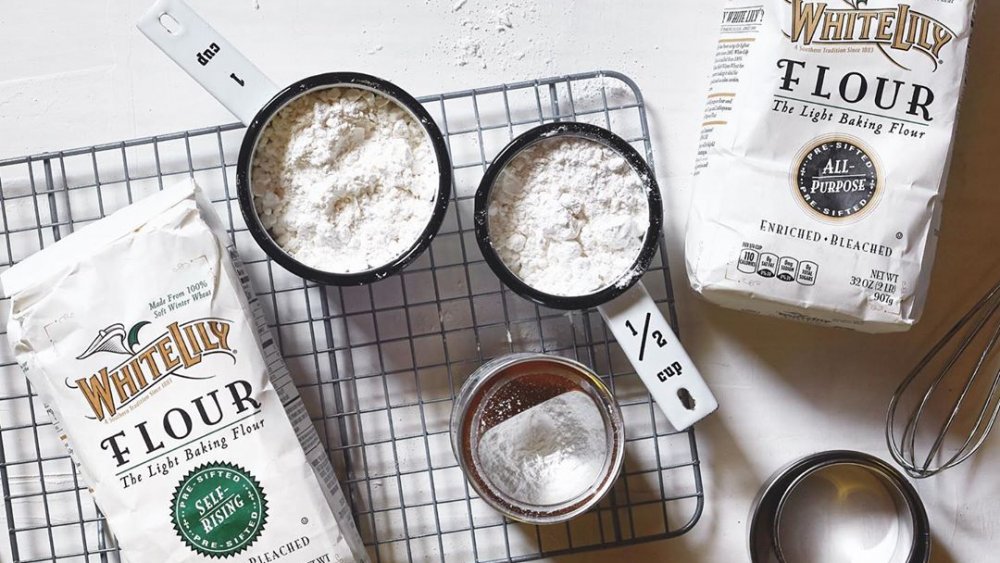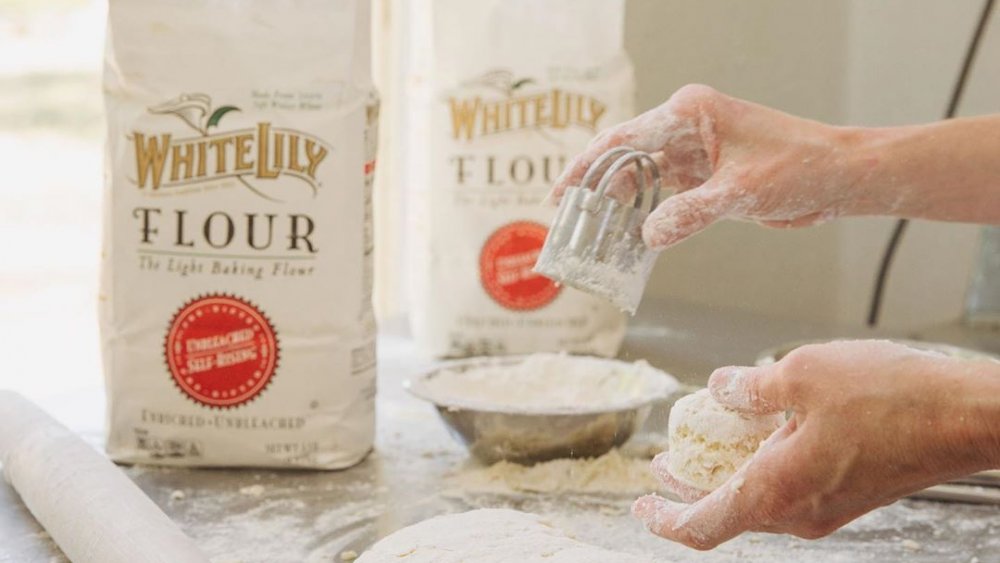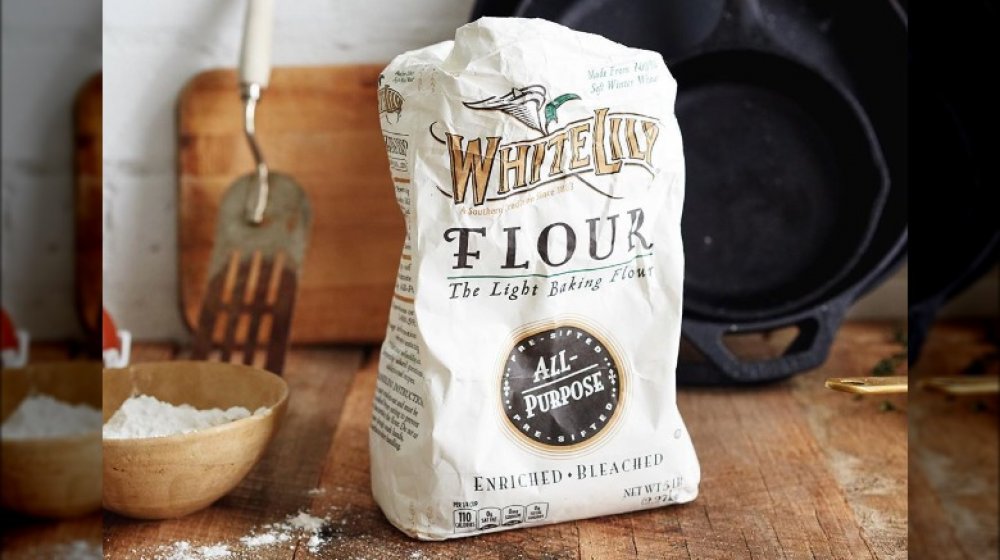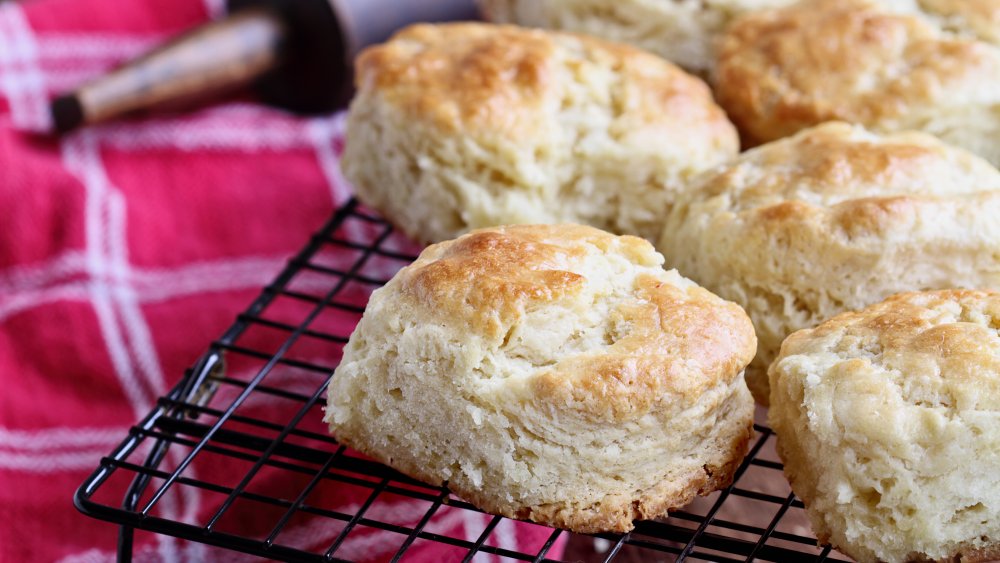The Untold Truth Of White Lily Flour
Unless you're from the South, White Lily could well be the most famous brand of flour you've never heard of. Southern bakers who learnt the art of making biscuits from their grandparents swear that White Lily is the reason why biscuits in the Northern part of the United States have never been able to achieve the lift and the lightness of their counterparts in the south. As award-winning baker Cheryl Day put it, "Biscuits are the croissants of the South. They're more complicated than you think, and they keep me busy every day" (via NPR).
"If you've ever had the misfortune of eating a biscuit outside of the South, you start might ask yourself why other regions of the country fall short on the road to biscuit goodness," writes chef Jeffrey Gardner n his blog for Southern Kitchen. Part of this, he said, had to do with the fact that biscuit-making is a craft that goes back generations. The other part of that equation is White Lily flour, which calls itself a "Southern pantry staple."
So what is it that makes White Lily the southern baker's secret to top notch biscuits?
White Lily flour is a southern tradition
White Lily began milling in Knoxville, Tennessee back in 1883, and uses only soft red winter wheat. Historically, the grain was mostly found in the Carolinas, Georgia, and Tennessee, though the the states that grow the most now include Ohio, Indiana, and Illinois (via The New York Times). However, Cleveland's The Plain Dealer contradicts that claim, writing that the wheat "is and always has been grown in Ohio, Indiana and Michigan, but not the South."
White Lily All-Purpose has 9 percent of protein – compared to King Arthur's 11.7 percent and Gold Medal's 10.5 percent - and this is important because protein is what determines how chewy a bread can be. A loaf of bread, for instance, will need flour with up to 13 percent protein, so a light, flaky biscuit will need a flour with far less. And even though, as Eater points out, there are other flours with low protein levels – pastry flour has 9 percent, cake flour has between 7 to 9 percent – they aren't milled the same way White Flour is.
White Lily flour undergoes a unique milling proceess
White Lily has changed owners several times – and its changed production locations once – but it has stayed true to its milling processes. Its legendary All-Purpose is milled and bleached in a way that produces a product that puts it in a different category from all-purpose, cake, and pastry flours. It only uses the heart of the endosperm, which sits well below the bran. Like cake flour, White Lily is bleached with chlorine, which further weakens its protein bonds – but it isn't bleached as much as cake flour is, and veteran bakers tell New York Times that that subtle difference makes White Lily taste less acidic. Pastry Flour may have the same amount of protein as White Lily All-Purpose, but it isn't chlorinated. Because of the subtle differences in White Lily's manufacturing process, the brand's most loyal fans say they can't deliver when they're asked to use a different flour, and recipes formulated specially for White Lily don't work as well with any other brands.
The secret to good biscuits may not be in the flour
While most southern biscuit makers will live and die by White Lily, a few professional chefs aren't as sold on the brand. Cheryl Day tells NPR that she used to swear by the flour before she realized many people didn't have access to White Lily, which is when she switched to a house blend of pastry and all-purpose flour. Day says her biscuits haven't suffered, and her observation is backed by Chadwick Boyd, who organizes the International Biscuit Festival in Tennessee. "We can teach you how to make a biscuit. It's just a few ingredients. I believe that peoples' issues with baking unsuccessfully is because it's something they don't do regularly, so when they do it, they're excited. They keep opening the door to the oven, they pull the biscuits out too early. Just bring it all together and let the ingredients do the work," Boyd tells NPR.
But as Gardner puts it, "White Lily flour provides one of the most user-friendly blends on the market, worthy of the lavish praise it receives from chefs and home cooks alike." If one bag of flour can provide a stable component to making perfect biscuits, it's certainly worth having in the kitchen.



